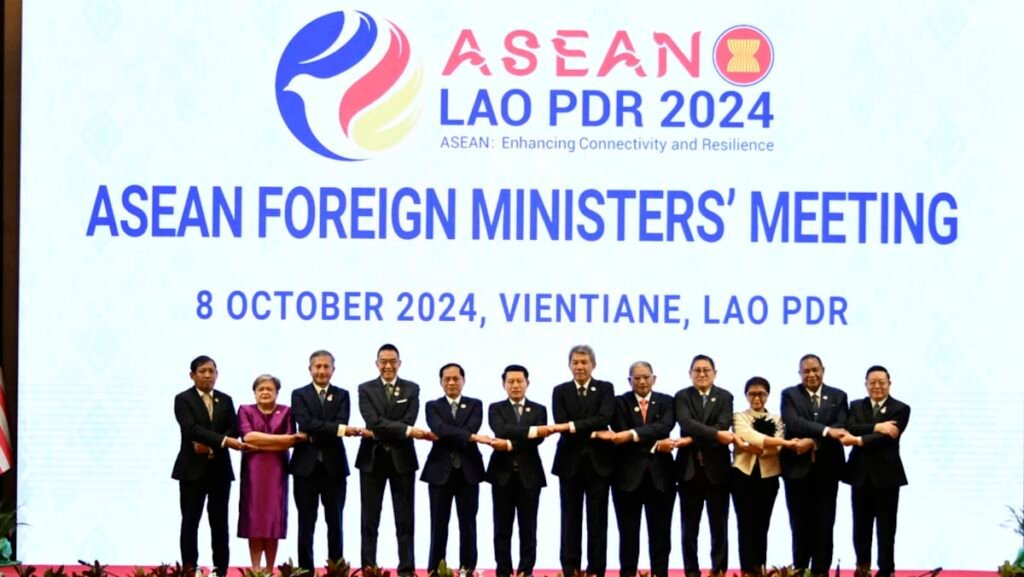Myanmar will be represented at an upcoming regional summit for the first time in three years, amid ongoing civil war within the country. The Association of Southeast Asian Nations (ASEAN) is set to convene in Laos and the conflict in Myanmar will be a significant topic of discussion. Despite previous efforts to find a diplomatic solution to the crisis, including a “five-point consensus” plan, the situation has shown no signs of improvement. The ruling junta in Myanmar has been excluded from ASEAN summits since their coup in February 2021, but has now chosen to send a senior foreign ministry official to the meeting in Vientiane.
The decision by Myanmar to send a representative to the ASEAN summit signifies their acceptance, to some extent, of the five-point consensus plan that aimed to restore peace to the country. Despite their previous refusal to send “non-political representatives” to the summits, the junta may have realized the importance of having their voice heard and being part of the discussions. The ongoing conflict within Myanmar has resulted in a bloody crackdown on dissent and armed opposition to the ruling regime, highlighting the urgency of finding a resolution to the crisis at hand.
In April 2021, Junta chief Min Aung Hlaing participated in an emergency ASEAN summit on the crisis in Myanmar, but has not been invited to regular gatherings since. The stance taken by ASEAN, barring Myanmar junta leaders from its summits, reflects the international community’s condemnation of the coup and the subsequent violence that has ensued. Despite these diplomatic efforts, the situation within Myanmar has continued to deteriorate, with no clear path towards peace and stability in sight.
The diplomatic source involved in the ASEAN meetings shared that the junta in Myanmar may have decided it was in their best interest to have their representation at the summit, rather than being on the outside looking in. By sending a senior foreign ministry official to the meeting in Vientiane, Myanmar has taken a step towards engaging in the regional discussions and potentially finding a way forward amidst the ongoing conflict. The significance of Myanmar’s representation lies in their acknowledgment of the five-point consensus and their willingness to participate in diplomatic efforts to address the crisis within their country.
The tensions within Myanmar have not only impacted the country itself, but have also had ripple effects throughout the region, as evidenced by the ongoing discussions within ASEAN. The decision to include Myanmar in the upcoming summit indicates a recognition of the need to address the crisis and work towards a peaceful resolution. However, with years of conflict and violence plaguing the country, finding a lasting solution will require a concerted effort from all parties involved, both domestically and internationally. The challenges ahead are significant, but the willingness of Myanmar to engage in dialogue at the ASEAN summit is a positive step towards finding a way forward amidst the turmoil and uncertainty.











